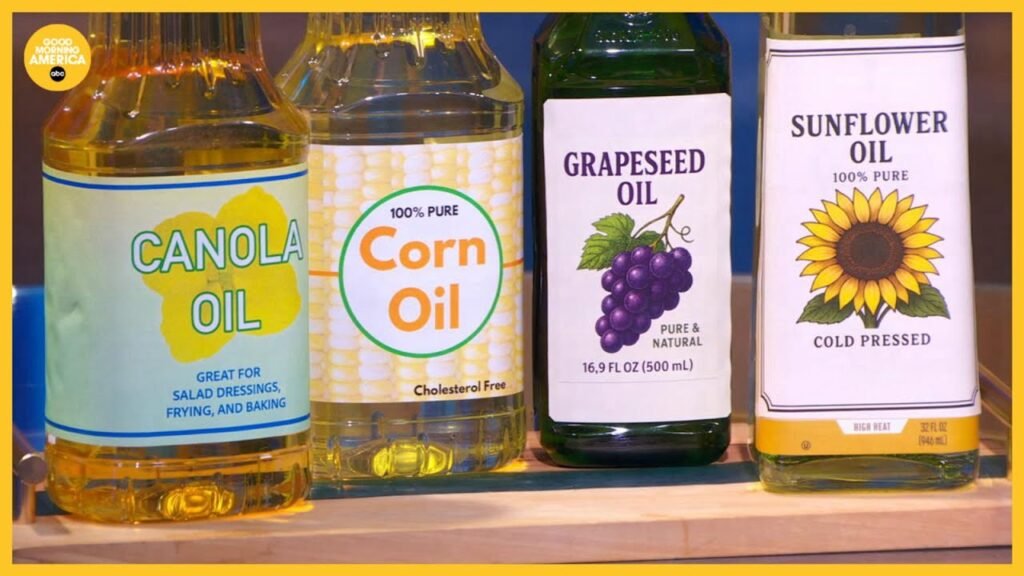
Understanding the Seed Oil Debate: What You Need to Know
Understanding the Seed Oil Debate: What You Need to Know
Ever felt lost in the sea of health advice about what to eat? You’re not alone! The conversation around seed oils has sparked a real fire, especially on social media and in certain political circles. Some folks claim these oils are tied to serious health issues like heart disease and inflammation. So, what’s fact and what’s fiction? Let’s dive into the world of seed oils together and sort through the noise, giving you the scoop you need to make smart dietary choices.
The Misinformation Factory
What’s Being Said About Seed Oils?
For years, oils like canola, sunflower, and soybean were staples in kitchens around the globe. But lately, voices in the health community have started to call these oils out as major players in chronic diseases like heart disease, cancer, and diabetes. Advocates of this anti-seed oil narrative—like Paul Saladino—often don’t back up their claims with solid science, which leaves us with a lot of confusion and misinformation.
It’s important to question these claims. Research doesn’t always back up the idea that seed oils are inherently bad or that they’re the main culprits behind these health issues.
The Truth About Omega-6 Fatty Acids
One of the hot-button issues is the omega-6 fatty acids found in seed oils. Critics suggest these fatty acids may cause inflammation and lead to various health problems. But hang on—a whole bunch of studies point out that when you eat omega-6 in moderation, it can actually be a part of a healthy diet and might even be good for your heart.
The American Heart Association and other reputable health organizations have repeatedly said that swapping out saturated fats for polyunsaturated fats (like those in seed oils) can help lower bad cholesterol levels and might reduce your chances of heart disease. So, rather than rushing to judgment, let’s look at the bigger picture of dietary fats and how they play into our health.
Political Overtones and Cultural Backlash
The Right-Wing Take
The criticism against seed oils isn’t just about health; it also weaves into political beliefs. Figures on the right, like Robert F. Kennedy Jr. and JD Vance, frequently express disapproval of seed oils, pushing for a return to traditional diets and cultural eating habits. This isn’t just a health topic; it’s a reflection on how modern food processing shapes what we eat as a society.
By painting seed oils as “modern” and therefore suspicious, these narratives resonate with people who yearn for a simpler, less processed lifestyle. Unfortunately, this all-or-nothing mindset can overshadow the scientific discussions we need to have about our food choices.
Consumer Trends and Dining Out
Interestingly, how we feel about seed oils is starting to show up in what we choose to eat. More restaurants are offering seed oil-free menus, tapping into the demand for transparency in food sourcing. Places like Sweetgreen are introducing seed oil-free options for those who prefer cleaner ingredients. It’s a sign that the public’s perception is shifting, even if some of the information driving that shift isn’t all that accurate.
Unpacking the Evidence: Myths vs. Facts
The Processing and Safety Talk
One of the big criticisms of seed oils is about how they’re processed, often using chemicals like hexane. Critics claim these solvents make the oils unsafe. But here’s the scoop: extensive research shows that the end products are safe for you to eat, according to regulatory bodies like the FDA. The extraction and refining methods for these oils are tightly regulated, ensuring that what you bring home is both safe and nutritious.
The Social Media Influence
Let’s not overlook the role social media plays in shaping opinions about seed oils. Influencers and popular figures, including podcasters like Joe Rogan, often amplify anti-seed oil messages. Their engaging platforms promote a cultural ideology that leans away from modern dietary practices in favor of something more primal. While it’s true that charismatic voices can influence public opinion, we need to separate celebrity opinions from solid scientific facts.
How to Apply This Information: Making Informed Choices
Your Guide to Navigating Dietary Choices
Now that we’ve explored both sides of the seed oil debate, let’s arm you with some practical ways to engage thoughtfully with this topic:
1. Get Educated: Dive into reliable nutritional studies and check out resources from trustworthy organizations. Learn how different fats play a role in your diet. Knowledge is power!
2. Enjoy in Moderation: If seed oils are your thing, embrace them—just don’t go overboard. Make sure to balance your diet with other healthy fats like olive oil, avocado oil, and fatty fish.
3. Tune into Your Body: Pay attention to how different fats make you feel. Everyone’s body is unique, and what works for one person might not work for another.
4. Ask Questions Eating Out: Don’t hesitate to ask about the cooking oils used in that restaurant dish you’re eyeing. Places that care about their ingredients often offer healthier options.
5. Choose Whole Foods: Instead of fixating on avoiding specific ingredients, focus on filling your plate with whole, minimally processed foods. Your overall well-being can benefit greatly from this mindset.
Conclusion: Navigating the Seed Oil Controversy
The conversation around seed oils is complex, tangled up with misinformation, cultural feelings, and political beliefs. While enjoying seed oils in moderation can fit into a balanced diet, let’s approach the topic with open eyes and a critical mind.
As we navigate our food choices, we have the power to prioritize our health without getting swept up in the sensational stories. Engage with credible sources, listen to your body, and aim for a diverse, whole-food diet.
So, what are your thoughts on the seed oil debate? How do you tackle your dietary choices? Let’s keep the conversation going—your insights matter!
Hashtags: #seed #oils #like #what #health #about #these #into #choices #fats #heart #dietary #diet #food #need
